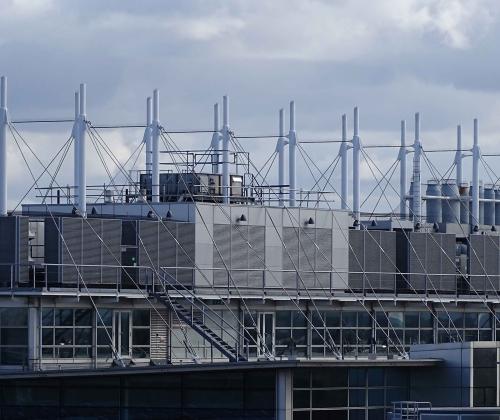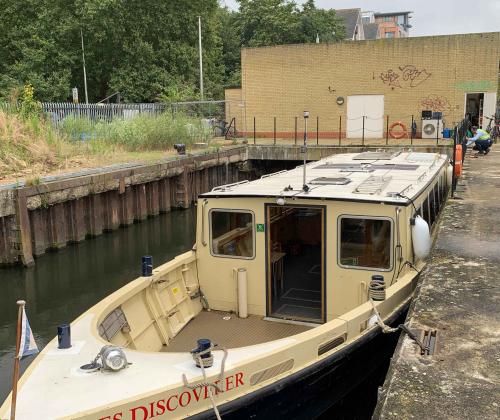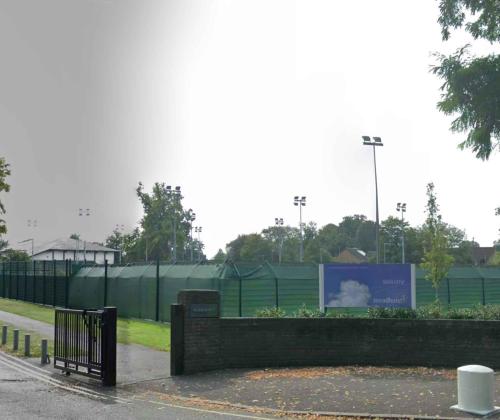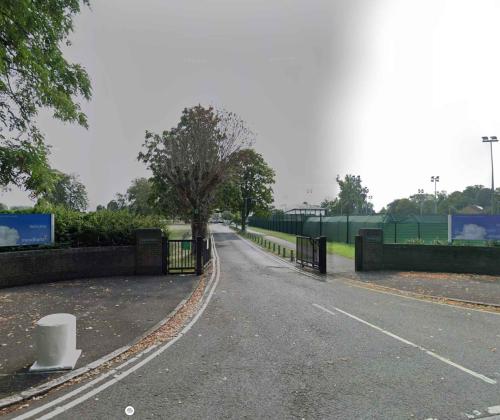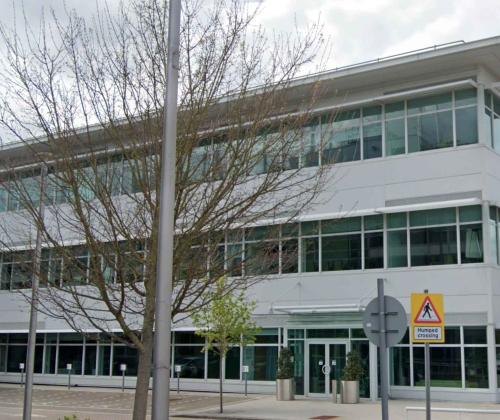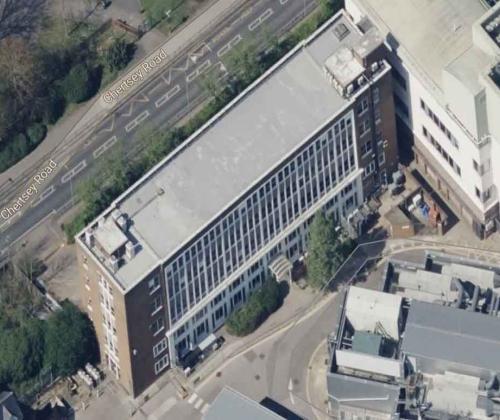Cummins Engine Plant - Roof Void Structural Assessment
- Existing build era: 1970s industrial structure (steel framing with roof void access walkways)
- Deck build-up (observed): Aluminium decking with OSB overlay (local deterioration noted)
- Issue identified: Overstressed access decking for anticipated maintenance loads (personnel + tools/equipment)
- Deliverables: Assessment report; load path review; adjustable work-platform strategy; deck strengthening notes; access/permit controls
- Overstressed decking system
- Finding: The aluminium deck with OSB overlay was inadequate for the required service loads (personnel, tools, occasional small plant).
- Risk: Local punching or progressive failure if loading continued without intervention.
- Ageing materials & legacy details
- Finding: 1970s materials and detailing are not aligned to modern standards; OSB overlay displayed deterioration at localised areas.
- Risk: Unreliable stiffness and slip resistance; uncertain performance at joints and fixings.
- Personnel safety in confined roof voids
- Finding: Ongoing maintenance requires predictable working platforms, clear routes and load limits.
- Risk: Falls through/onto defective decking; manual-handling and rescue complications.
1) Adjustable work platforms spanning primary steel
- Recommended modular/adjustable work platforms (proprietary units or modular decks) that transfer loads directly into steel beams, bypassing weak deck zones.
- Defined bearing locations, allowable spans and fix/lock-off requirements, with handrails/toe-boards and anti-slip surfacing to suit Work at Height duties.
2) Deck reinforcement and local repairs
- Set out reinforcement/over-boarding where platforms cannot be placed (short access runs, inspection points).
- Specified fastener patterns, minimum thicknesses and compatible materials; highlighted replacement of deteriorated OSB with a durable, moisture-resistant board and improved slip resistance.
3) Load management & access controls
- Introduced interim restrictions: limit personnel and equipment loads in the roof void until platforms/reinforcements are installed.
- Implemented permit-to-work and tagged routes, with clear signage of maximum permissible loads and exclusion of non-essential traffic.
4) Safety, QA and standards alignment
- Assessment referenced BS EN 1991 (Eurocode 1) for imposed loads and concentrated actions relevant to access/walkways, and BS EN 1993 where checks to steel members/supports were required.
- Access equipment and temporary works aligned with BS 5975 (temporary works principles), Work at Height Regulations 2005, and relevant equipment standards.
- Required pre-use inspections, periodic checks, and recorded sign-offs for platform installations.
- Risk materially reduced: workers no longer rely on overstressed legacy decking for primary support.
- Clear, buildable method: adjustable platforms and targeted deck reinforcement give a repeatable, auditable solution.
- Operational continuity: maintenance can proceed safely with defined routes, limits and permits, minimising disruption.
Structural inspection & assessment · Load path review · Strengthening strategy · Temporary works/access planning · Risk assessment & method inputs · Permit-to-work controls · Implementation QA checklist
Expertise in Complex Structural Challenges
- Advanced Engineering Solutions: Skilled in addressing intricate structural issues through innovative engineering practices.
- Innovative Approaches: Utilises cutting-edge technology and methodologies.
Customised Solutions
- Tailored Designs: Solutions crafted to meet the specific needs of each project and client.
- Client Collaboration: Works closely with clients to understand their requirements and achieve desired outcomes.
Commitment to Quality
- Stringent Quality Control: Maintains high standards throughout project execution, from design to commissioning.
- Safety Focused: Prioritises safety in all aspects of design and implementation, adhering to the highest industry standards.
GEM Enterprise specialises in comprehensive structural and civil engineering services. Our experienced team is dedicated to delivering innovative, safe, and efficient solutions for complex engineering challenges. With a commitment to excellence and client satisfaction, we provide services ranging from structural assessments to the design and implementation of bespoke engineering solutions.


